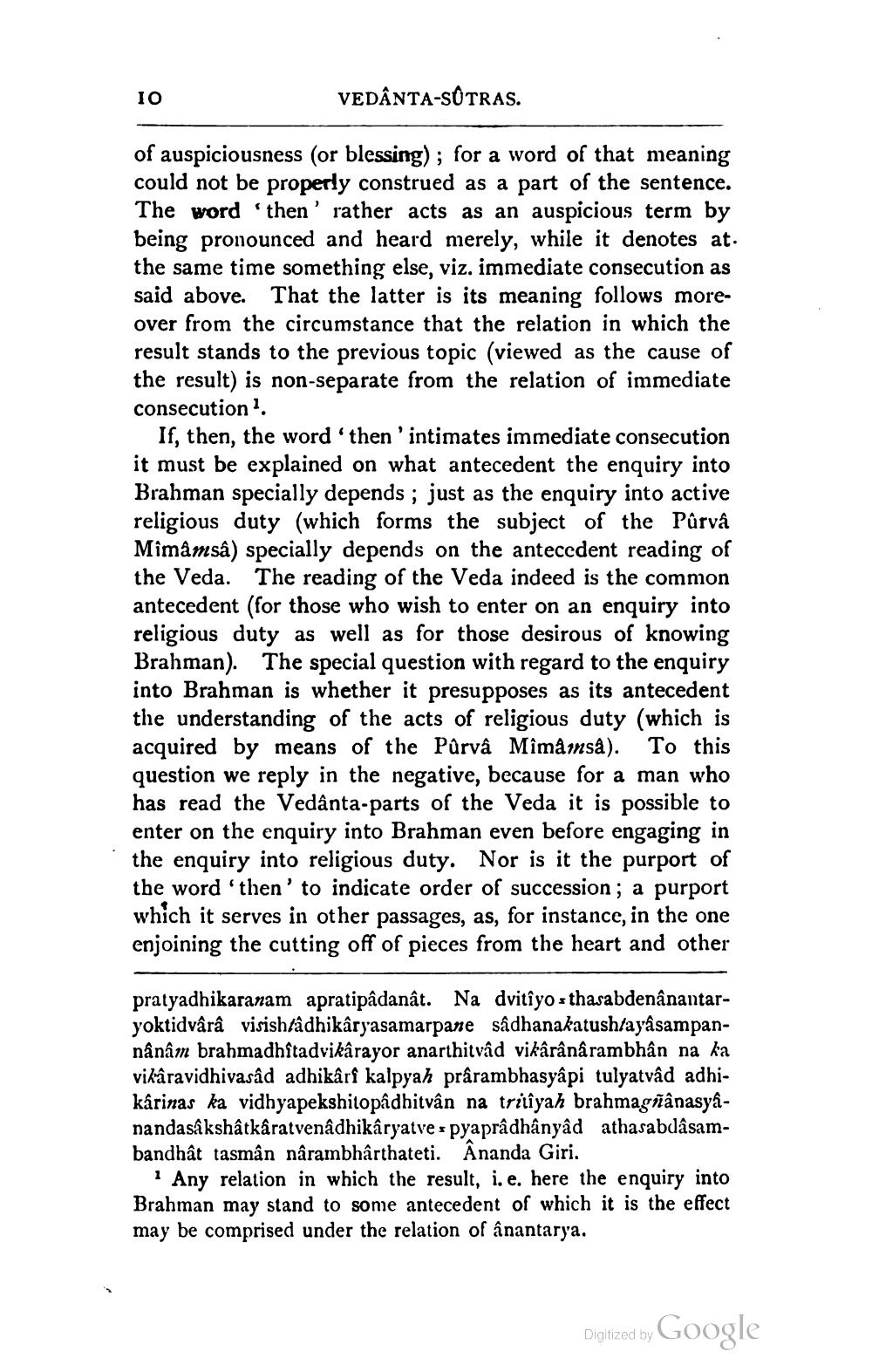________________
10
VEDÂNTA-SOTRAS.
of auspiciousness (or blessing); for a word of that meaning could not be properly construed as a part of the sentence. The word 'then rather acts as an auspicious term by being pronounced and heard merely, while it denotes at. the same time something else, viz. immediate consecution as said above. That the latter is its meaning follows moreover from the circumstance that the relation in which the result stands to the previous topic (viewed as the cause of the result) is non-separate from the relation of immediate consecution
If, then, the word 'then 'intimates immediate consecution it must be explained on what antecedent the enquiry into Brahman specially depends; just as the enquiry into active religious duty (which forms the subject of the Pârvâ Mimamsa) specially depends on the antecedent reading of the Veda. The reading of the Veda indeed is the common antecedent (for those who wish to enter on an enquiry into religious duty as well as for those desirous of knowing Brahman). The special question with regard to the enquiry into Brahman is whether it presupposes as its antecedent the understanding of the acts of religious duty (which is acquired by means of the Pūrvâ Mîmamsa). To this question we reply in the negative, because for a man who has read the Vedanta-parts of the Veda it is possible to enter on the enquiry into Brahman even before engaging in the enquiry into religious duty. Nor is it the purport of the word 'then' to indicate order of succession; a purport which it serves in other passages, as, for instance, in the one enjoining the cutting off of pieces from the heart and other
pratyadhikaranam apratipadanât. Na dvitîyo s thasabdenânantaryoktidvârâ visishadhikaryasamarpane sadhanakatushtayâsampannânâm brahmadhitadvikarayor anarthitvad vikârânârambhân na ka vikâravidhivasâd adhikari kalpyah prarambhasyapi tulyatvâd adhikârinas ka vidhyapekshitopâdhitvân na trilîyah brahmagñânasyanandasâkshâtkâratvenâdhikâryatve s pyaprâdhânyâd athasabdâsambandhât tasmân nârambhârthateti. Ananda Giri.
Any relation in which the result, i.e. here the enquiry into Brahman may stand to some antecedent of which it is the effect may be comprised under the relation of ânantarya.
Digitized by
Digized by Google




